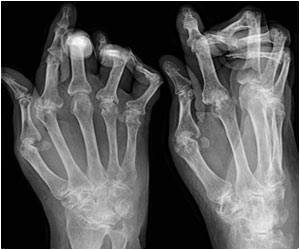It highlights the important role that big data, including streams from social media and environmental sensors, could play in addressing health challenges.

The researchers found that asthma related visits to the emergency room went up as certain air quality measures worsened, and also as the number of asthma-related tweets increased. The researchers additionally looked at asthma-related Google searches in the area. However, they found that it was not a good predictor for asthma emergency room visits.
Ram said, "The research highlights the important role that big data, including streams from social media and environmental sensors, could play in addressing health challenges. People can get a lot of interesting insights from social media that they cannot from electronic health records. People only go to the doctor once in a while and they do not always tell doctor how much they have been exercising or what they have been eating, but people share that information all the time on social media. We think that prediction models like this can be very useful, if we can combine various types of data, to address chronic diseases. We have got really good results and now we are working on building even more robust models to see if it can increase the accuracy level by using more types of datasets over a longer time period."
The study will appear in Journal of Biomedical and Health Informatics.
Source-Medindia











